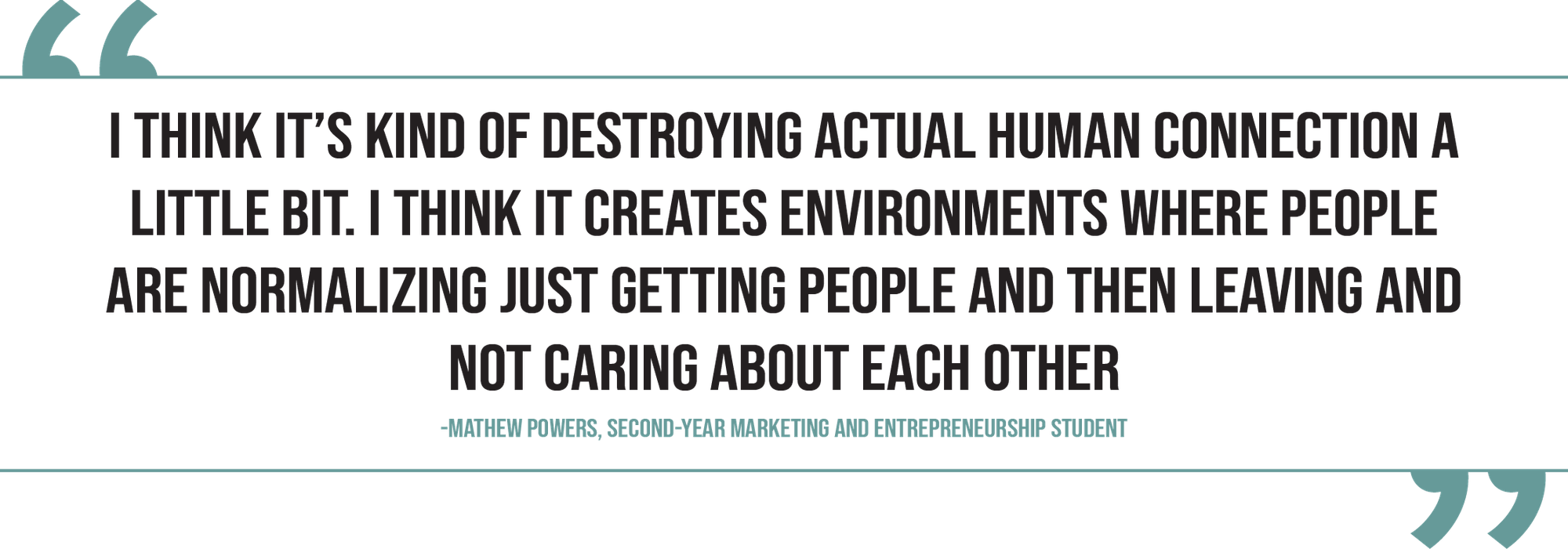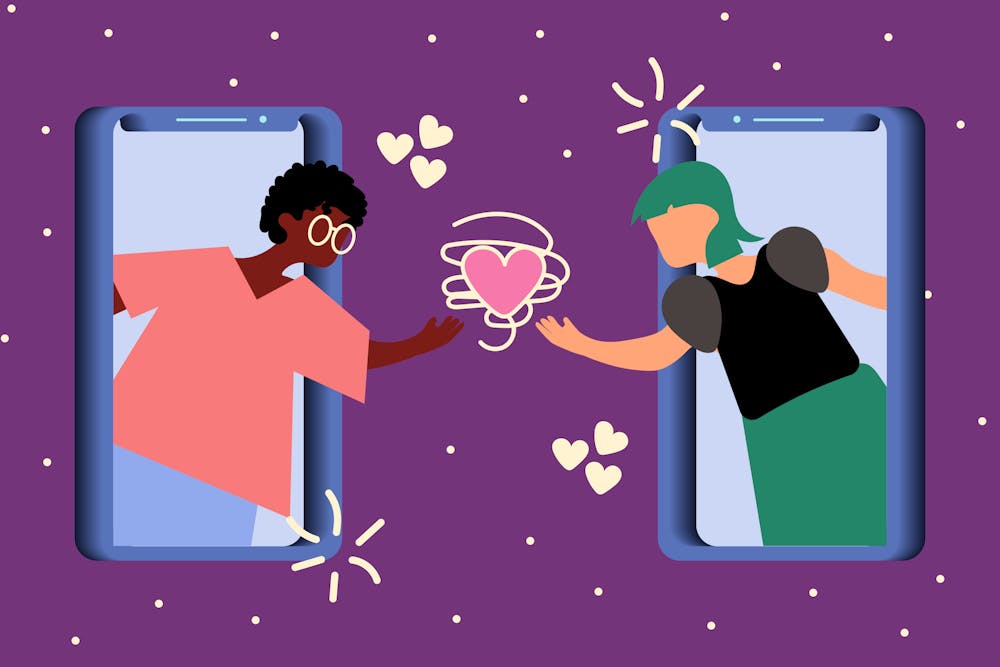Could your next relationship really be one swipe away?
With the rise of dating apps, users are now able to find their match from the comfort of their own homes. College students, especially, have turned to dating apps as a way to meet new people. But their thoughts on the apps and their effectiveness are mixed.
The popularity of dating apps among young people can be attributed to them feeling more comfortable connecting with others online than in person, Dr. Melanie Palomares said. Palomares is a psychology professor at the University of South Carolina who has researched college students' feelings about and experiences with dating apps.
“Post-COVID, a lot of students are more comfortable being online rather than saying 'hello' even in person," Palomares said. "I even asked them, ‘If you are on an elevator and there’s a cute person or whatever, would you actually, say, strike up a conversation?’ And hands down they’re like, ‘No — maybe in a group of 150 people, only two or three people would do that.'”
Though dating apps serve as a convenient way for students to meet other people, the type of connections they look for on the apps vary. Third-year neuroscience and chemistry student Natalie Strom said it is not common for people to search for serious relationships through dating apps.
“I would say that, despite what people say, the majority of people on dating apps are not looking for a serious relationship, which is totally fine,” Strom said. “I think it’s more so finding someone who, at best, you could be acquaintances with and friends with.”
Some users also download dating apps as a form of entertainment. Lexi Rude, a third-year biology student, said swiping through Tinder is a group activity that she and her friends like to partake in.
“I just got Tinder for the first time in the fall semester, and sometimes me and my roommates will hook my computer up to the TV and just go through my Tinder together, just for fun,” Rude said.
But some USC students are distrusting of dating apps and steer clear of them. First-year computer science student Conor Roach said he avoids dating apps because they seem “artificial.”
“I prefer meeting someone naturally through classes or common interests,” Roach said. “I’ve never found dating apps to be my way to find people.”
Users of popular dating apps such as Tinder and Hinge sued their parent company, Match Group, in February 2024. These users claimed that the apps are designed to be addictive rather than foster genuine relationships.
Mathew Powers, a second-year marketing and entrepreneurship student, said dating apps have become more of a tool for "hookup culture" than making real connections with people.
“I think it’s kind of destroying actual human connection a little bit,” Powers said. “I think it creates environments where people are normalizing just getting people and then leaving and not caring about each other.”

Other students, including first-year exercise science student Cody Lanier, said they are skeptical of the connections made on dating apps, as well.
"I think (dating apps are) the wrong place to find love," Lanier said.
Many students, though, said they feel that it is possible to make real connections with others on dating apps. First-year business student Ryan Dunphy said using dating apps can help people find people with similar interests more quickly as opposed to in-person interactions.
“I think you can make serious connections because you find what’s in common really fast instead of talking to them for an hour and then getting shut down," Dunphy said.
Some students, including third-year real estate and entrepreneurship management student Trey DeTurris, said they have witnessed how connections made on dating apps can blossom into long-lasting relationships.
“My uncle and my aunt … they met on an online dating app or online dating service, and they’ve been together for 20 years," DeTurris said.
Fostering relationships through dating apps is part of a growing trend of our lives shifting online, Palomares said, but that does not take away from the promise of new connections.
"(Users) take away that experience of the convenience. They take away potentially getting a date or meeting someone new," Palomares said. "Especially after COVID, it's been a big shift in, you do everything online, you do everything on your phone — homework, shopping, you name it. So it's just accelerated that trend."

